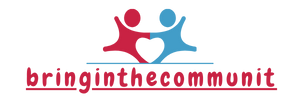Table of Contents
ToggleIn a world where knowledge is just a click away, educational websites are the unsung heroes of learning. They’re like the Swiss Army knives of information—versatile, handy, and always ready to help. Whether you’re a student cramming for exams or an adult trying to impress at dinner parties, these online resources have something for everyone.
Overview of Educational Websites
Educational websites serve as essential tools for learning in the digital landscape. Users find these websites beneficial across various levels, from primary education to advanced studies. They often provide interactive materials, such as quizzes, video lectures, and forums for discussion.
Many popular platforms offer resources tailored to specific subjects or skills. For instance, Khan Academy focuses on foundational subjects like math and science, allowing users to learn at their own pace. Coursera partners with universities to present online courses in a variety of subjects, providing academic credentials for completion.
Websites also cater to professional development. LinkedIn Learning presents a wide array of courses aiming at skill improvement and career advancement. Users seeking to enhance their knowledge can access instructional content designed by industry experts.
Additional resources include articles, e-books, and podcasts. Websites like Edutopia provide valuable insights into teaching strategies, while other platforms specialize in subject-specific content. The availability of diverse formats supports different learning styles, ensuring accessibility for all users.
Platforms often include community features that foster collaboration among learners. Discussion boards and peer review sections allow individuals to share knowledge and gain feedback on their work. Active participation enriches the educational experience and promotes a deeper understanding of topics.
Overall, educational websites contribute significantly to today’s learning environment, offering plethora resources and opportunities for knowledge enhancement and skill development.
Types of Educational Websites

Educational websites fall into various categories, each serving specific learning needs. Understanding these types helps users choose the right resources to enhance their knowledge.
Formal Education Platforms
Formal education platforms offer structured learning experiences similar to traditional classrooms. Websites such as Khan Academy provide comprehensive courses in subjects like math and science. Coursera emphasizes online courses from accredited universities, enabling learners to earn legitimate certificates. Such platforms cater to students of all ages, from schoolchildren to adults pursuing higher education. Progress tracking features often accompany these sites, allowing users to monitor their academic achievements. Supportive communities also form around these resources, creating opportunities for peer engagement and collaboration.
Informal Learning Websites
Informal learning websites cater to those seeking knowledge outside traditional education systems. Examples include platforms like TED-Ed and YouTube, which provide insightful videos on diverse topics. These websites encourage self-directed learning, offering resources for individuals curious about new subjects. User-friendly interfaces often facilitate easy navigation, making it simple to find relevant content. Additionally, many informal platforms include discussion forums that promote interaction and idea sharing among learners. This type of resource suits lifelong learners looking to expand their understanding in a flexible manner.
Key Features of Effective Educational Websites
Effective educational websites incorporate several key features that enhance the learning experience. User-friendly interfaces and thoughtful design are crucial for attracting and retaining learners. Accessibility options must be a priority, enabling users with varying abilities to engage comfortably. Clear navigation menus simplify the search for specific resources. Engaging visuals complement text, making learning more enjoyable.
Content quality and relevance represent central aspects of successful educational platforms. High-quality materials must align with current standards and meet the needs of diverse learners. Regular updates ensure information remains accurate and relevant. Engaging content should stimulate critical thinking and promote knowledge retention. Integrating multimedia, such as videos and interactive quizzes, further enriches the educational experience. Overall, effective educational websites prioritize usability and quality, fostering an environment conducive to learning.
Benefits of Using Educational Websites
Educational websites offer numerous advantages that enhance the learning process. Access to a wealth of resources, engagement with interactive materials, and convenience stand out as primary benefits.
Accessibility and Flexibility
Accessing educational websites supports learners anytime and anywhere. Online platforms remove geographical barriers, making education available to a global audience. Various devices, including smartphones and tablets, make content consumption easy. Flexibility in scheduling allows learners to study at their own pace, fitting education into busy lifestyles. Users can revisit materials as often as needed, reinforcing understanding. Customized learning paths ensure that individuals can focus on areas needing improvement, making the learning experience more efficient and tailored.
Diverse Learning Resources
Educational websites provide a wide array of learning resources. These platforms host video lectures, articles, podcasts, and e-books that accommodate different learning preferences. Interactive quizzes promote active engagement, while discussion forums foster community collaboration among learners. Quality content aligned with current academic standards ensures relevance and accuracy. Varied materials allow users to explore subjects deeply or learn new skills quickly. Ultimately, the range of resources helps cater to diverse educational needs, enriching the overall learning experience.
Challenges and Limitations
Despite their advantages, educational websites face several challenges and limitations that can impact the learning experience. Users often experience difficulties navigating complex interfaces. Accessibility remains a crucial concern, as not all platforms cater to individuals with varying abilities. Quality assurance represents another significant issue, with occasional discrepancies in the accuracy of information.
Content overload can overwhelm learners, creating confusion when trying to find relevant materials. While many educational websites offer an extensive range of resources, users sometimes struggle to filter through to the most pertinent information. Interaction levels can also vary, leading to inconsistent collaboration amongst peers on certain platforms.
Technical issues such as slow loading times or server downtimes interrupt learning sessions. Users may find that frequent maintenance or updates disrupt their study routines. Additionally, the lack of personalized learning experiences on some sites can hinder effective engagement and retention.
Some platforms restrict access to certain content behind paywalls or subscription models. These financial barriers limit access for less affluent users, creating disparities in educational opportunities. Furthermore, while many educational websites offer free resources, the absence of accreditation can pose a challenge for users seeking recognized qualifications.
Lastly, maintaining motivation can often be difficult in an online learning environment. The solitary nature of studying can lead to feelings of isolation. Users may miss out on the camaraderie found in traditional classroom settings, which can affect their overall learning journey.
Educational websites play a crucial role in modern learning by offering diverse resources that cater to various needs. They empower learners to take charge of their education through accessibility and flexibility. While challenges exist, such as navigation issues and content overload, the benefits often outweigh these drawbacks. With the right approach, users can harness the power of these platforms to expand their knowledge and skills effectively. Embracing the wealth of information available online can lead to a richer educational experience, fostering lifelong learning and personal growth.






